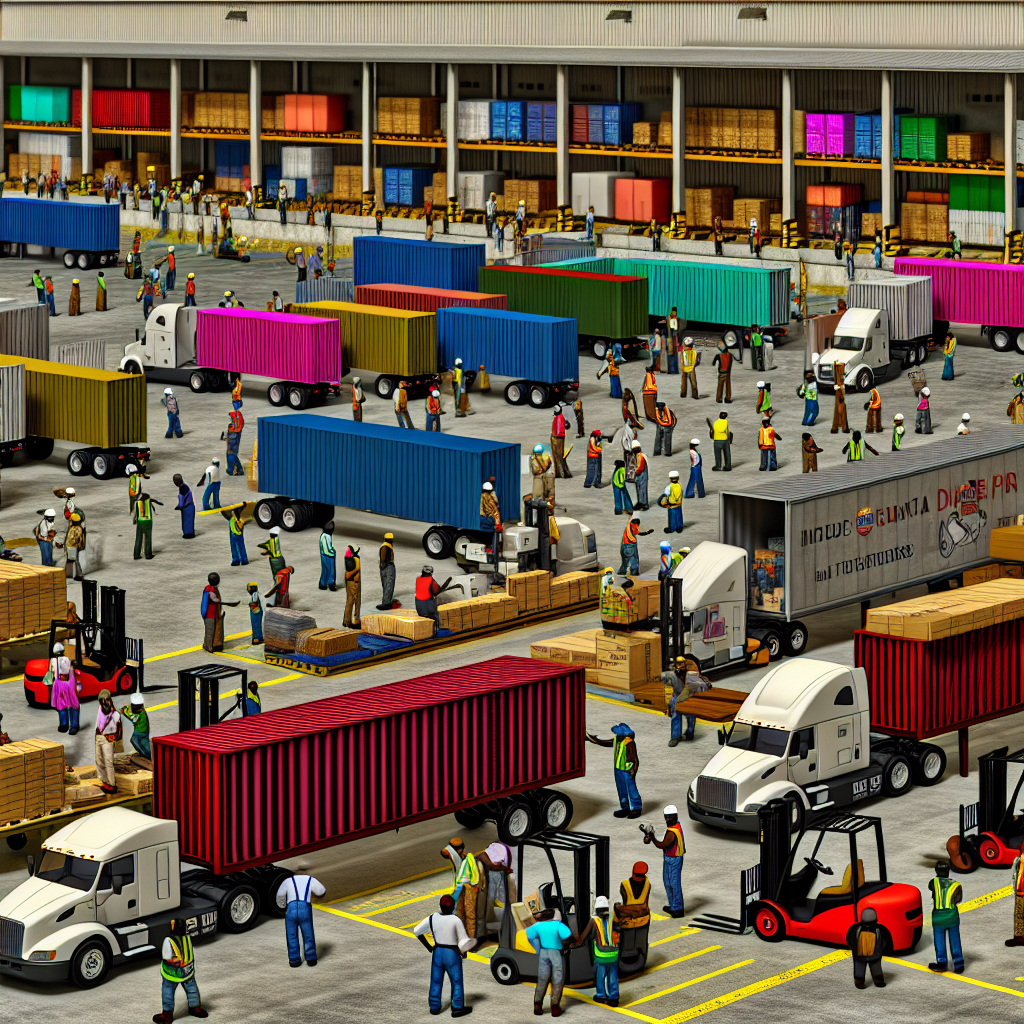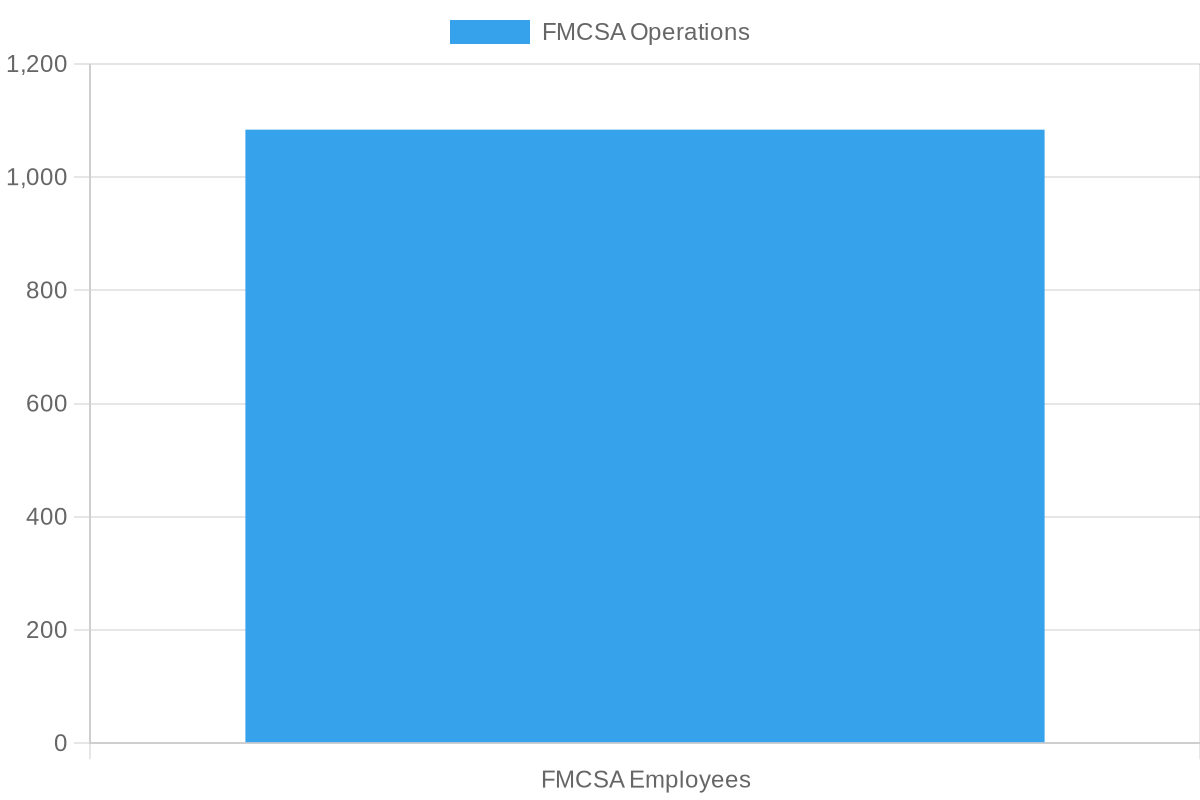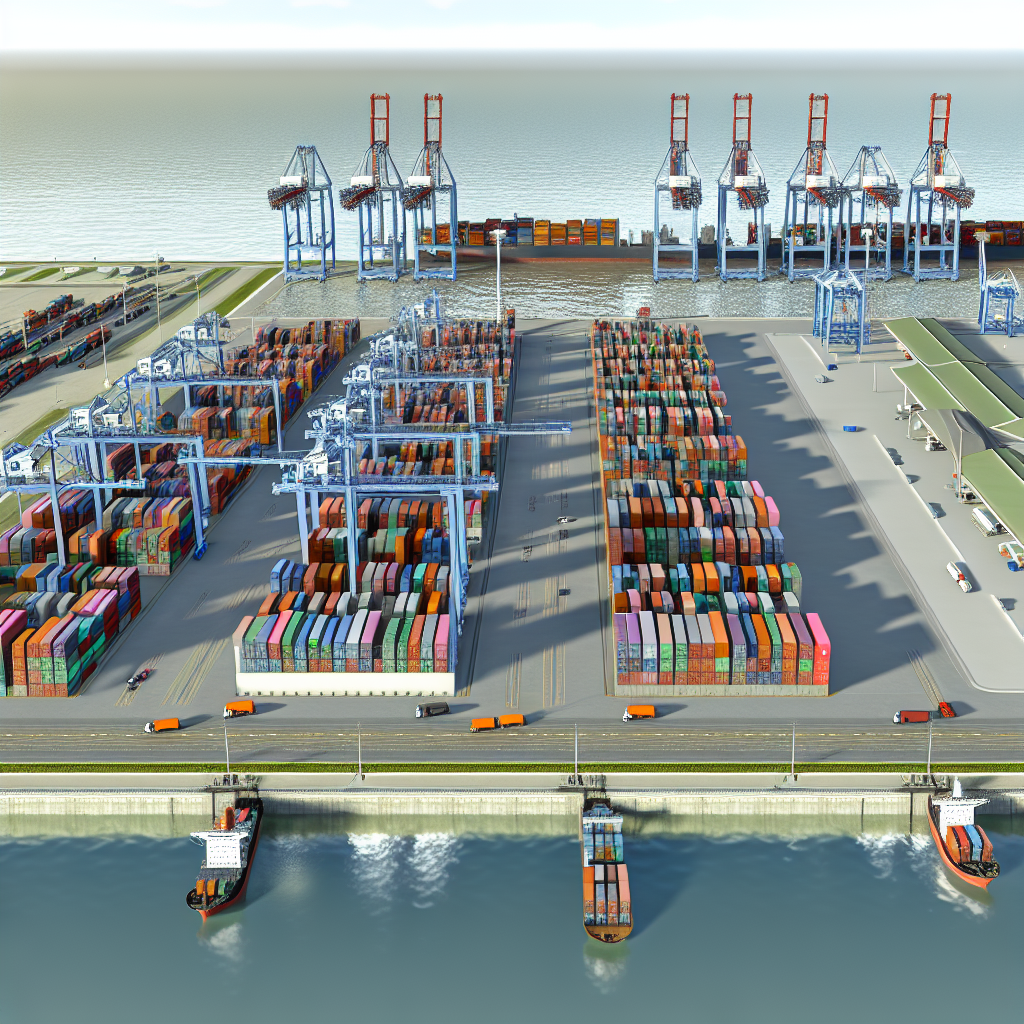As the U.S. Grapples with a Government Shutdown
As the U.S. grapples with a government shutdown that began on October 1, 2025, many industries are bracing for potential disruptions. However, the trucking sector can rest a little easier amidst the turmoil.
While the shutdown has raised concerns regarding various governmental functions, trucking oversight remains robust and largely unaffected. The Federal Motor Carrier Safety Administration (FMCSA) and other key safety agencies continue their operations without interruption, ensuring that the safety and regulatory frameworks that govern the trucking industry stay intact.
This article delves into the dynamics of the ongoing shutdown, emphasizing how the enforcement of trucking oversight is not only preserved but also crucial during these challenging times.
Insights on Trucking Oversight During the Shutdown
Despite the U.S. government shutdown that began on October 1, 2025, trucking oversight has remained remarkably stable. Central to this resilience are the Federal Motor Carrier Safety Administration (FMCSA) and the Department of Transportation (DOT), which continue to operate effectively without interruption.
Operational Continuity:
The FMCSA, which is responsible for regulating the trucking industry, remains fully operational with all 1,084 of its employees working without furlough. Funding for these personnel is sourced from authorized contract authority and the Highway Trust Fund, allowing day-to-day activities to proceed as normal. This includes critical functions such as issuing licenses, enforcing insurance requirements, and managing the Drug and Alcohol Clearinghouse, all supported by fees that directly fund their operations [CCJ Digital]. The agency possesses sufficient liquidating cash and is able to maintain its activities even during a temporary lapse in appropriations.
Similarly, the DOT’s Federal Highway Administration has its entire workforce of 2,268 employees actively supporting highway safety and infrastructure projects. Their capabilities ensure that state reimbursements for ongoing road initiatives can continue for several months without interruption [Truck News].
Implications for Trucking Oversight:
The continuity of operations at FMCSA and DOT is vital for maintaining trucking oversight and ensuring highway safety. It guarantees that regulatory compliance checks, safety inspections, and enforcement of safety standards persist unaffected by political interruptions. This is especially critical considering the essential role the trucking industry plays in the U.S. economy, highlighting the importance of uninterrupted oversight during such unprecedented times.
In conclusion, even as many government functions face setbacks due to the shutdown, FMCSA and DOT remain committed to their mission of ensuring safety and compliance within the trucking industry. By having a fully functional workforce and appropriate funding mechanisms, these agencies significantly mitigate the potential negative impacts of the shutdown on transportation safety and regulatory oversight.
Staffing Statistics During the Government Shutdown
During the recent U.S. government shutdown, which began on October 1, 2025, several key agencies remained operational to ensure continued trucking oversight. Below are the staffing statistics for the Federal Motor Carrier Safety Administration (FMCSA), Federal Highway Administration (FHWA), and National Highway Traffic Safety Administration (NHTSA):
-
Federal Motor Carrier Safety Administration (FMCSA):
- Total Employees: 1,084
- Status: All employees remained unfurloughed and continued operational duties.
- Significance: This ensures regulatory compliance, safety inspections, and the enforcement of trucking safety standards remain active and effective.
-
Federal Highway Administration (FHWA):
- Total Employees: 2,268
- Status: All employees remained unfurloughed, working to support highway safety and infrastructure projects.
- Significance: Their efforts allow state reimbursements for ongoing road initiatives to continue seamlessly, crucial for road infrastructure maintenance.
-
National Highway Traffic Safety Administration (NHTSA):
- Total Employees: 574
- Status: All employees remained unfurloughed, ensuring ongoing attention to vehicle safety standards and regulations.
- Significance: Continuous operations help maintain roads and vehicles safety oversight, critical for public safety.
Despite the government shutdown, the unwavering staffing levels within these agencies support essential trucking oversight and contribute to maintaining safety and regulatory standards across the nation’s highways. This operational continuity plays a vital role in minimizing disruptions that could affect the trucking industry, an essential component of the U.S. economy.
| Agency Name | Number of Employees | Status |
|---|---|---|
| Federal Motor Carrier Safety Administration (FMCSA) | 1,084 | All employees unfurloughed |
| Federal Highway Administration (FHWA) | 2,268 | All employees unfurloughed |
| National Highway Traffic Safety Administration (NHTSA) | 574 | All employees unfurloughed |

| Agency Name | Number of Employees | Status |
|---|---|---|
| Federal Motor Carrier Safety Administration (FMCSA) | 1,084 | All employees unfurloughed |
| Federal Highway Administration (FHWA) | 2,268 | All employees unfurloughed |
| National Highway Traffic Safety Administration (NHTSA) | 574 | All employees unfurloughed |
Implications for Highway Safety Agencies During the Shutdown
The implications of the ongoing U.S. government shutdown, which began on October 1, 2025, resonate across various sectors, but for highway safety agencies, the scenario presents a unique opportunity to demonstrate the significance of uninterrupted oversight and enforcement. The Federal Motor Carrier Safety Administration (FMCSA), along with other key agencies such as the Department of Transportation (DOT), continues to operate without disruptions, ensuring that public safety on the highways remains a top priority.
Commitment to Public Safety:
Law enforcement and regulatory agencies are vital for the continuous monitoring and enforcement of safety standards that protect the public. The operational integrity of FMCSA during this period showcases that even in the face of political challenges, the commitment to keeping highways safe cannot waver. Employees are actively engaged in conducting safety inspections, compliance checks, and regulatory reviews, which are critical for preventing accidents and maintaining the overall safety of the transportation industry.
Mitigating Risks of Disruption:
With the shutdown, there may be heightened fears of reduced oversight, leading to potential lapses in safety enforcement and regulatory compliance. However, the continuity of operations at FMCSA ensures that past setbacks do not hinder the aggressive enforcement of safety measures. This operational steadfastness serves to mitigate risks associated with inadequately monitored trucking activities, thereby safeguarding the public from potential hazards that might arise when oversight is compromised.
Importance of Inspections and Compliance Checks:
The urgency of enforcing regulations and conducting thorough inspections is amplified during these tumultuous times. The trucking industry plays an indispensable role in the U.S. economy, and its safe operation is crucial for sustaining commerce and protecting lives. Uninterrupted compliance checks and safety inspections guarantee that trucking operators adhere to established safety standards, contributing to reduced accidents and enhanced highway safety.
Conclusion:
Ultimately, the implications of the shutdown extend far beyond administrative details; they encompass vital aspects of public safety and regulatory integrity. Highway safety agencies are effectively addressing the challenges posed by the shutdown through unwavering operational capacity, enhancing enforcement and oversight strategies to protect the public. The efficacy of these agencies during these times proves they are well-equipped to navigate adversity while prioritizing their mission to ensure safety on the nation’s highways.

Statements from Authorities Regarding the Shutdown’s Impact on Infrastructure and Transportation
In light of the U.S. government shutdown that commenced on October 1, 2025, various authorities have made significant statements regarding its implications on infrastructure and transportation, particularly focused on trucking oversight and operations.
President Donald Trump
President Trump has made remarks linking the withholding of federal funds for infrastructure projects to concerns about diversity, equity, and inclusion (DEI). White House Office of Management and Budget Director Russ Vought noted on October 1, 2025:
“Roughly $18 billion in New York City infrastructure projects have been put on hold to ensure funding is not flowing based on unconstitutional DEI principles.” [Reuters]
Additionally, the Department of Transportation announced delays in processing reimbursements for key infrastructure projects, including a $300 million reimbursement for the Second Avenue Subway, citing an administrative review that has been hindered by staff furloughs from the shutdown. [Reuters]
Senate Democratic Leader Chuck Schumer and House Democratic Leader Hakeem Jeffries
In a response to the administration’s actions, Schumer and Jeffries condemned the withholding of funds and emphasized the impact on everyday commuters:
“Donald Trump is once again treating working people as collateral damage in his endless campaign of chaos and revenge. By blocking billions of bipartisan infrastructure dollars for the Gateway Tunnel and Second Avenue Subway, Trump isn’t hurting Democrats—he’s hurting the nurses, teachers, first responders and everyday commuters from New York and New Jersey who rely on safe, reliable transit to get to work, school, to shop and home to their families.” [Hakeem Jeffries]
They further stated the importance of these projects for job creation and economic stability:
“The Gateway Tunnel and Second Avenue Subway aren’t political trophies—they are lifelines. They mean tens of thousands of good-paying union jobs. They mean shorter commutes, safer travel and a stronger economy not just for New York, but for the entire nation.” [Hakeem Jeffries]
This critique highlights the political divide over infrastructure funding and reflects concern over how infrastructure delays might negatively impact communities and the economy.
Importance of Trucking Oversight
Authorities have also stressed the continued significance of trucking oversight during the shutdown:
- Greg Regan and Shari Semelsberger, from the AFL-CIO Transportation Trades Department, stated that the shutdown reduces federal safety oversight and delays crucial infrastructure projects, saying:
- Senator Edward J. Markey expressed concerns over the FMCSA’s oversight capabilities, calling for stronger procedures to prevent increasing fatalities from truck-related crashes. [Markey Senate]
- The Department of Transportation has ensured that FMCSA operations are unimpeded during the shutdown, affirming:
- Randy Guillot of the American Trucking Associations reinforced the trucking industry’s vital role, stating:
“These closures reduce federal safety oversight, strain airport security, and delay much-needed infrastructure and planning projects.” [TTD]
“All operations continue as normal with a lapse in annual appropriations, subject to the amount of liquidating cash the Agency has available.” [CCJ Digital]
“The trucking industry is the backbone of our economy. Even during shutdowns, our responsibility is to ensure safety and maintain the flow of goods. It’s how we keep our communities connected.” [Fritzke Trucking]
These statements highlight both the operational challenges posed by the shutdown and the continued commitment to ensuring the safety and efficiency of transportation and infrastructure, essential to the nation’s economy.
Reminder: Importance of Infrastructure Projects and the Highway Trust Fund
As the U.S. navigates through this government shutdown, it is essential to remember the critical role that infrastructure projects funded through the Highway Trust Fund play in our economy. The Highway Trust Fund continues to be a vital resource for maintaining and improving the nation’s transportation infrastructure. This fund finances numerous highway projects that are instrumental in supporting economic growth and enhancing public safety.
Despite the shutdown, the Department of Transportation (DOT) stands prepared to ensure that these essential projects progress without significant delays. Thanks to the uninterrupted funding stream, the DOT has assured that reimbursements for state projects can occur for several months. This proactive approach is a testament to the commitment towards highway safety and infrastructure enhancement, which are critical elements for the trucking industry and the broader economy. Whether it involves road repairs or new construction, it is crucial for stakeholders to understand that infrastructure initiatives will continue to receive focus and support, even during challenging times like a government shutdown.
The Highway Trust Fund is thus not merely a financial mechanism, but a fundamental pillar that upholds the safety, efficiency, and reliability of our transportation networks. Stakeholders in the industry must remain aware of how these funds facilitate ongoing projects that contribute to the overall health of the U.S. economy, providing jobs and connecting communities across the nation.
Maintaining robust infrastructure through the Highway Trust Fund ensures that the trucking industry and other sectors can operate effectively, ultimately benefiting everyone who relies on a stable and reliable transportation system.
Conclusion
As we navigate through the challenges posed by the U.S. government shutdown, it is crucial to recognize that trucking oversight remains steadfast and significantly unaffected. The Federal Motor Carrier Safety Administration (FMCSA) and the Department of Transportation (DOT) continue their essential operations, committing to the safety and regulatory frameworks that govern the trucking industry.
This resilience ensures that all safety inspections, compliance checks, and enforcement of safety standards persist unabated, thereby reinforcing public safety amidst political uncertainties. The ongoing functionality of these agencies, with their full complement of staff and operational support, showcases their dedication to maintaining the integrity of highway safety, which is particularly vital as the trucking industry underpins the U.S. economy.
In summary, while many parts of the government may experience disruptions, the commitment to thorough oversight within the trucking sector endures with unwavering strength. This not only protects the motoring public but also secures the seamless movement of goods across the nation, underscoring the importance of uninterrupted operational capabilities during this testing time.
Simplified Overview of Trucking Oversight During the U.S. Government Shutdown
The U.S. government shutdown started on October 1, 2025. The impact of this shutdown varies across different sectors, particularly the trucking industry.
Key Points:
- The Federal Motor Carrier Safety Administration (FMCSA) remains operational without disruption. All 1,084 FMCSA employees are on duty thanks to ongoing funding from the Highway Trust Fund, which supports essential duties like issuing licenses and enforcing regulations. Source
- The Environmental Protection Agency (EPA) faces delays in vehicle certifications needed for compliance with the Clean Air Act. This may affect the rollout of new vehicles for model years 2026 and 2027, risking shortages and increased prices. Source
- The Customs and Border Protection (CBP) operations are still in place but slowed, causing longer delays at ports. This situation can lead to spoilage for goods like perishables. Source
- Although trucking companies can continue operations, new federal permits and driver background screenings are delayed, creating challenges for expanding trucking fleets. Source
- The air cargo sector is affected due to potential staff absenteeism and postponed certifications, complicating operations. Source
In summary, while key trucking oversight functions remain operational, the government shutdown introduces significant challenges that could impact the trucking industry, such as delays in permit processing and increased operational difficulties.
Insights on Trucking Oversight During the Shutdown
Despite the U.S. government shutdown that began on October 1, 2025, trucking oversight has remained remarkably stable, a testament to resilient trucking regulations. Central to this resilience are the Federal Motor Carrier Safety Administration (FMCSA) and the Department of Transportation (DOT), which continue to operate effectively without interruption.
Operational Continuity:
The FMCSA, charged with regulating the trucking industry, remains fully operational with all 1,084 of its employees working without furlough. Funding for these personnel is sourced from authorized contract authority and the Highway Trust Fund, which supports various infrastructure projects, allowing day-to-day activities to proceed as normal. This includes critical functions such as issuing licenses, enforcing insurance requirements, and managing the Drug and Alcohol Clearinghouse, all crucial aspects of safety compliance, supported by fees that directly fund their operations (CCJ Digital). The agency possesses sufficient liquidating cash and is able to maintain its activities even during a temporary lapse in appropriations.
Similarly, the DOT’s Federal Highway Administration has its entire workforce of 2,268 employees actively supporting highway safety and critical infrastructure projects. Their capabilities ensure that state reimbursements for ongoing road initiatives can continue for several months without interruption (Truck News).
Implications for Trucking Oversight:
The continuity of operations at FMCSA and DOT is vital for maintaining trucking oversight and ensuring highway safety. It guarantees that regulatory compliance checks, safety inspections, and enforcement of safety standards persist unaffected by political interruptions. This is especially critical considering the essential role the trucking industry plays in the U.S. economy, highlighting the importance of uninterrupted oversight during such unprecedented times.
In conclusion, even as many government functions face setbacks due to the shutdown, FMCSA and DOT remain committed to their mission of ensuring safety and compliance within the trucking industry. By having a fully functional workforce and appropriate funding mechanisms, these agencies significantly mitigate the potential negative impacts of the shutdown on transportation safety and regulatory oversight.
Implications for Highway Safety Agencies During the Shutdown
The implications of the ongoing U.S. government shutdown resonate across various sectors, particularly for highway safety agencies that emphasize infrastructure funding. The Federal Motor Carrier Safety Administration (FMCSA), along with the DOT, continues to operate without disruptions, ensuring that public safety on the highways remains a top priority.
Commitment to Public Safety:
Law enforcement and regulatory agencies are vital for the continuous monitoring and enforcement of safety standards that protect the public. The operational integrity of FMCSA during this period showcases that even in the face of political challenges, the commitment to keeping highways safe cannot waver. Employees are actively engaged in conducting safety inspections, compliance checks, and regulatory reviews related to trucking regulations, which are critical for preventing accidents and maintaining the overall safety of the transportation industry.
Mitigating Risks of Disruption:
With the shutdown, there may be heightened fears of reduced oversight, leading to potential lapses in safety enforcement. However, the continuity of operations at FMCSA ensures that past setbacks do not hinder the aggressive enforcement of safety measures, which remains pivotal for safety compliance. This operational steadfastness serves to mitigate risks associated with inadequately monitored trucking activities, thereby safeguarding the public from potential hazards.
Importance of Inspections and Compliance Checks:
The urgency of enforcing regulations and conducting thorough inspections is amplified during these tumultuous times. The trucking industry is essential for the U.S. economy, and its safe operation—backed by effective trucking regulations—is crucial for sustaining commerce and protecting lives. Uninterrupted compliance checks and safety inspections guarantee that trucking operators adhere to established safety standards, contributing to reduced accidents and enhanced highway safety.
Conclusion:
Ultimately, the implications of the shutdown extend far beyond administrative details; they encompass vital aspects of public safety and regulatory integrity. Highway safety agencies are effectively addressing the challenges through unwavering operational capacity, enhancing enforcement and oversight strategies to protect the public. The efficacy of these agencies during these times underscores their commitment to ensuring safety on the nation’s highways despite the complexity of infrastructure funding during government interruptions.


